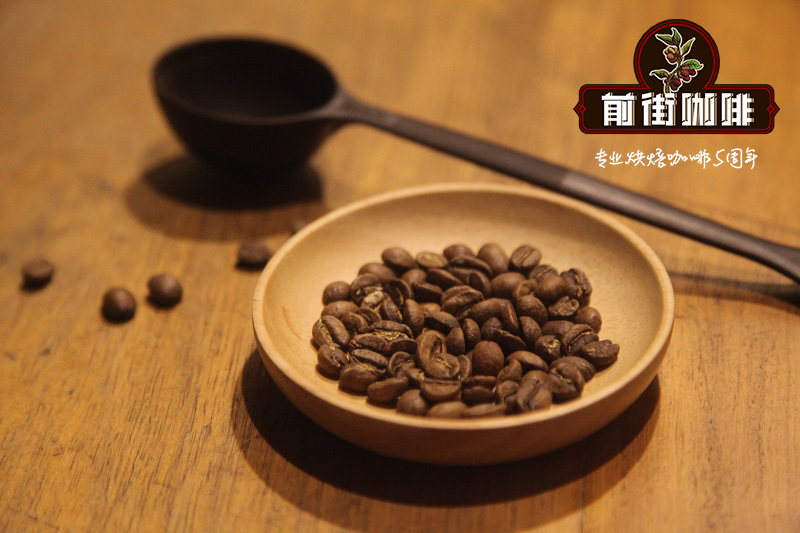Kenyan coffee bean brand recommends the unique flavor of Kenyan coffee beans.

Professional coffee knowledge exchange more coffee bean information please follow the coffee workshop (Wechat official account cafe_style)
Qianjie-Kenyan Coffee introduction
When coffee was first introduced to Kenya, Kenya was a British colonial country. In order to earn foreign exchange, the British colonial government widely promoted the cultivation of coffee in Kenya and shipped it to London for export after the beans were harvested. It was not until 1933, when Kenya passed a coffee law and established a coffee committee, that coffee sales were transferred back to Kenya.
The Kenyan government attached great importance to coffee sales, and the following year, in 1934, the government established a coffee auction system, and in 1935, a draft coffee grading system was formally drawn up to improve coffee quality. With the attention of the Kenyan government, the coffee industry has developed very successfully.
There are two main types of coffee cultivation in Kenya: large farms and cooperatives. Large farms generally have large acreage and independent coffee processing facilities. Most coffee production is composed of a large number of small farmers, cooperatives generally employ special managers to supervise the coffee processing process of farmers, and even fine to the management of each coffee tree.
Compared with shading planting in many high-quality producing areas, Kenyan coffee shading trees are not common, but are obviously much more unrestrained. In addition, Kenyan coffee rarely participates in certification, and restrictions on variety and environmental factors make the use of pesticides necessary, while organic certification that is popular in other countries is less common in Kenya. There are two coffee harvest seasons in Kenya, the main harvest season is from October to December and the second harvest season is from May to July.
Bourbon Bourbon was first brought to Kenya for planting. In the 1950s, the then agricultural research institution Scott Laboratory selected two excellent hybrids, SL-28 and SL-34, through unremitting efforts, subverting the long-standing prejudice of artificial breeding without excellent natural varieties. SL-28 and SL-34 help Kenyan coffee to form its own unique flavor characteristics and establish a perfect reputation in the coffee industry.
In addition, like the choice of other coffee producing countries, the Kenyan government and the Coffee Research Institute (Coffee Research Foundation) are also trying to promote a new variety Ruiri 11 because of coffee production and disease resistance, but the continuous efforts have not won the recognition of coffee eaters, who agree that the taste of the new variety is lacking and the future of Ruiru11 remains to be seen.
In short: Qianjie is a coffee research hall, happy to share the knowledge about coffee with you, we share unreservedly just to make more friends fall in love with coffee, and there will be three low-discount coffee activities every month. The reason is that Qianjie wants to make more friends drink the best coffee at the lowest price, which has been Qianjie's tenet for 6 years!
END
Important Notice :
前街咖啡 FrontStreet Coffee has moved to new addredd:
FrontStreet Coffee Address: 315,Donghua East Road,GuangZhou
Tel:020 38364473
- Prev

What is the Kenyan race coffee? the complex berry aroma of Kenyan coffee beans.
Professional coffee knowledge exchange more coffee bean information please follow the coffee workshop (Wechat official account cafe_style) front street-Kenya Coffee introduction Kenya's main coffee producing areas are around the country's highest mountain Mount Kenya, it is the second highest peak in Africa after Mount Kilimanjaro, many plantations have a good altitude, high-altitude diurnal temperature difference is conducive to extension
- Next

Introduction to the flavor and taste of Kenyan coffee recommended by African Kenyan coffee brands
Professional coffee knowledge exchange more coffee bean information please follow the coffee workshop (Wechat official account cafe_style) front street-Kenya coffee bean recommendation coffee industry insiders all think that Kenyan coffee is one of its favorite products, this is because Kenyan coffee contains what we want from a good cup of coffee
Related
- Beginners will see the "Coffee pull flower" guide!
- What is the difference between ice blog purified milk and ordinary milk coffee?
- Why is the Philippines the largest producer of crops in Liberia?
- For coffee extraction, should the fine powder be retained?
- How does extracted espresso fill pressed powder? How much strength does it take to press the powder?
- How to make jasmine cold extract coffee? Is the jasmine + latte good?
- Will this little toy really make the coffee taste better? How does Lily Drip affect coffee extraction?
- Will the action of slapping the filter cup also affect coffee extraction?
- What's the difference between powder-to-water ratio and powder-to-liquid ratio?
- What is the Ethiopian local species? What does it have to do with Heirloom native species?

